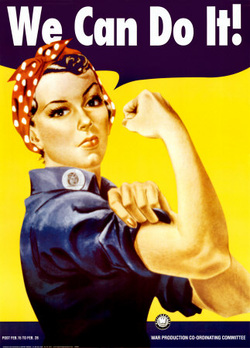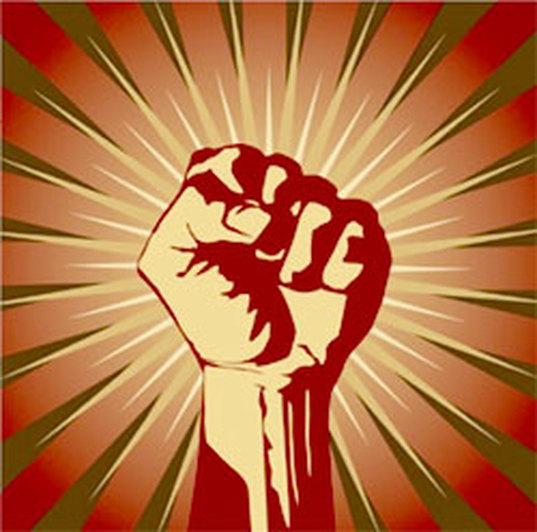Abolitionists and Proslavery Advocates in Antebellum American
The Grimke Sisters
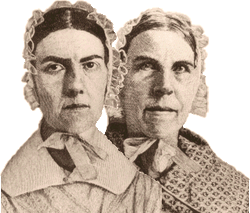
Angelina and Sarah Grimke
Angelina Grimke was born on February 29, 1805. She was an was an American political activist, abolitionist, and suffragette. This is ironic because her father was a slave holding judge. Angelina had a sister, Sarah Grimke, who she was very close with and begged her parents to let her sister be her god mother and they consented. Angelina was very religious and went to church on a regular basis. When the time for her confirmation in the Episcopalian Church at the age of thirteen, Angelina refused to recite the required pledge. Always an inquisitive and rebellious young woman, she concluded that she could not agree with the pledge, and would not participate in the confirmation ceremony. Angelina converted to the Presbyterian faith in April 1826. Angelina was very close with her pastor. Both her and her pastor were very opposed to slavery because it was immoral that violated Christian law and human rights. The sisters moved to New York where they became the first women to lecture for the Anti Slavery Society. This brought conflict because there were a lot of disagreements about women doing public speaking. The sisters refused to give up their campaign and now began to fight for women rights.
Sojourner Truth
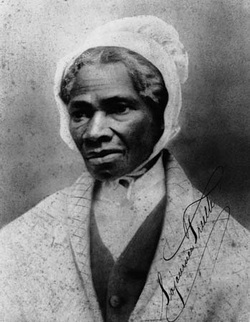
Sojourner Truth
Isabella is Sojourner Truth’s real name and was born in the year of 1797. She was an African American abolitionist and a women's rights activist. Sojourner was a slave and was first sold at the age of 9. During slavery it was very tough for her because she was mistreated and beaten on a regular basis. Truth fell in love with another slave and the white people were so mad that the beat the man to death. She then later married another man whom she had five children with. The state of New York began in 1799 to legislate the gradual abolition of slaves. Dumont, Sojourner’s master, had promised her freedom a year before the state emancipation, "if she would do well and be faithful." As expected, Dumont took back on his promise and Truth was very determined and escaped with her daughter. When she left she didn’t know what direction she was headed in, all she knew was she was going to get away. Sojourner soon ran into the home of Isaac and Maria Van Wagenen. Dumont eventually tracked her down and threatened to take her baby away from her and that’s when Isaac offered to buy Truth’s services. Sojourner’s life had taken a turn and a turn for the better. She became more spiritual and religious. Truth spoke about abolition, women's rights, prison reform, and preached to the Michigan Legislature against capital punishment. Not everyone welcomed her preaching and lectures, but she had many friends and the support among many influential people at the time.
Frances Ellen Watkins Harper
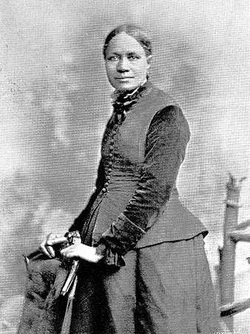
Frances Ellen Watkins Harper
Frances Ellen Watkins Harper was an African American abolitionist and poet. Watkins was born to free parents in Maryland so she was not a slave. Unfortunately, Watkins mother died when she was 3 years old and her aunt and uncle took her in to take care of her. Watkins uncle was a civil rights activist. She looked up to her uncle very much and he became a great influence on her. Watkins loved writing books and also poetry. She was the first African American to publish anything. Watkins was a strong supporter of prohibition and woman's suffrage. She was connected with national leaders in suffrage, and in 1866 gave a inspirational speech before the National Women's Rights Convention, demanding equal rights for all, including black women.
Reflection
Did all women agree about their role in society?
Based on these 3 examples of women, no women did agree about their role in society. All of these women were abolitionists, activists, and fought for women's rights. Women didn't have to be born into slavery to feel mistreated or to not feel equal to men. These women spoke their minds and spoke the truth. They believed in what was right and had no problem conveying it. Each of these women had a turning point within their lives to make them who they were and to believe what they believed it. To them, everyone was human and race and gender should of never matter and should have never been a problem. These women proved themselves because back then, only men had the right to speak and stand up, but life was changing. These women are very inspirational and made an impact on a lot of individuals, especially women.
I found this topic very interesting because being a woman myself shows how strong women actually have to be. It seems like women had so much to prove and no one would give them the time and day because of the fact of their gender. People believed that women didn't know any better and didn't have the right to speak their mind or even be independent. I could never imgaine being put into a situation where i couldn't voice my opinions. I feel that women have come a very long way and that is because they were strong, had hope, and most important had each other. Women had to stick together because no one respected their opinion. These women are apart of history for a reason and that reason is that they made a difference in the way people thought. Everything was about race and gender. You had no respect as a woman and no respect if you were black and that is not what America was made for.
Did all women agree about their role in society?
Based on these 3 examples of women, no women did agree about their role in society. All of these women were abolitionists, activists, and fought for women's rights. Women didn't have to be born into slavery to feel mistreated or to not feel equal to men. These women spoke their minds and spoke the truth. They believed in what was right and had no problem conveying it. Each of these women had a turning point within their lives to make them who they were and to believe what they believed it. To them, everyone was human and race and gender should of never matter and should have never been a problem. These women proved themselves because back then, only men had the right to speak and stand up, but life was changing. These women are very inspirational and made an impact on a lot of individuals, especially women.
I found this topic very interesting because being a woman myself shows how strong women actually have to be. It seems like women had so much to prove and no one would give them the time and day because of the fact of their gender. People believed that women didn't know any better and didn't have the right to speak their mind or even be independent. I could never imgaine being put into a situation where i couldn't voice my opinions. I feel that women have come a very long way and that is because they were strong, had hope, and most important had each other. Women had to stick together because no one respected their opinion. These women are apart of history for a reason and that reason is that they made a difference in the way people thought. Everything was about race and gender. You had no respect as a woman and no respect if you were black and that is not what America was made for.
QUOTES
"...thou art blind to the danger of marrying a woman who feels and acts out the principle of equal rights..."
-Grimke Sisters
"“I am not going to die, I'm going home like a shooting star.”"
-Sojourner Truth
"The true aim of female education should be, not a development of one or two, but all the faculties of the human soul, because no perfect womanhood is developed by imperfect culture.”
-Frances Ellen Watkins Harper
-Grimke Sisters
"“I am not going to die, I'm going home like a shooting star.”"
-Sojourner Truth
"The true aim of female education should be, not a development of one or two, but all the faculties of the human soul, because no perfect womanhood is developed by imperfect culture.”
-Frances Ellen Watkins Harper
